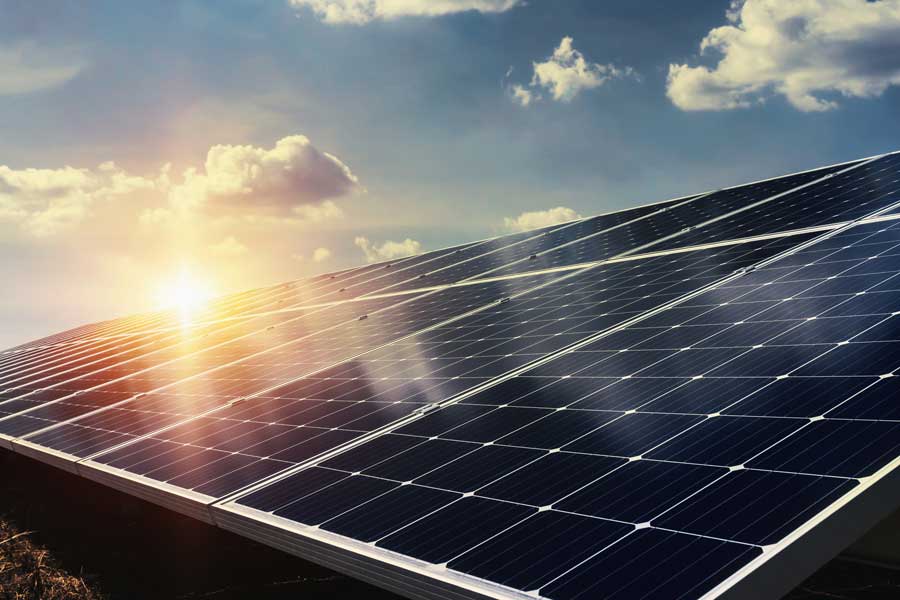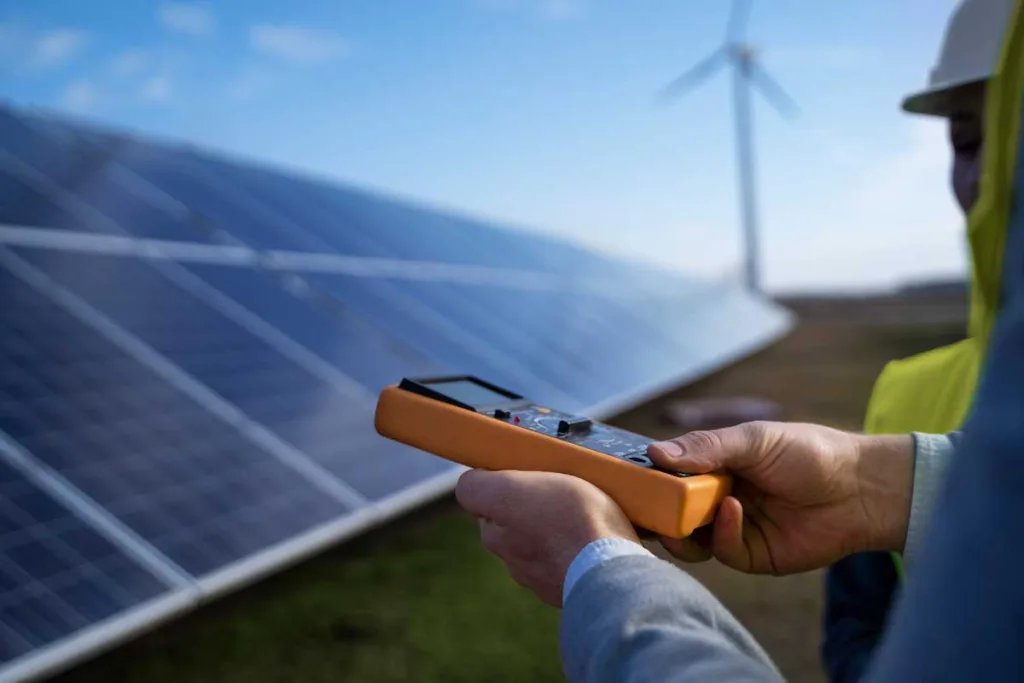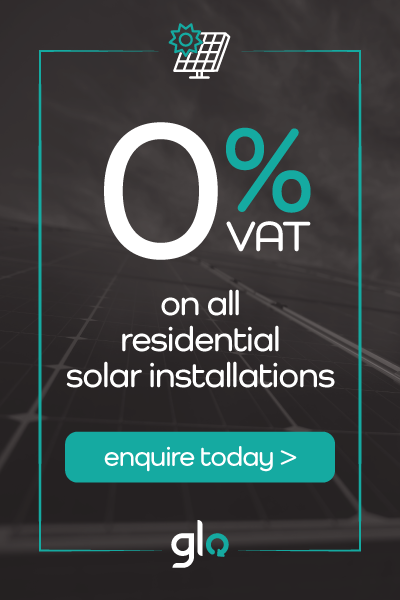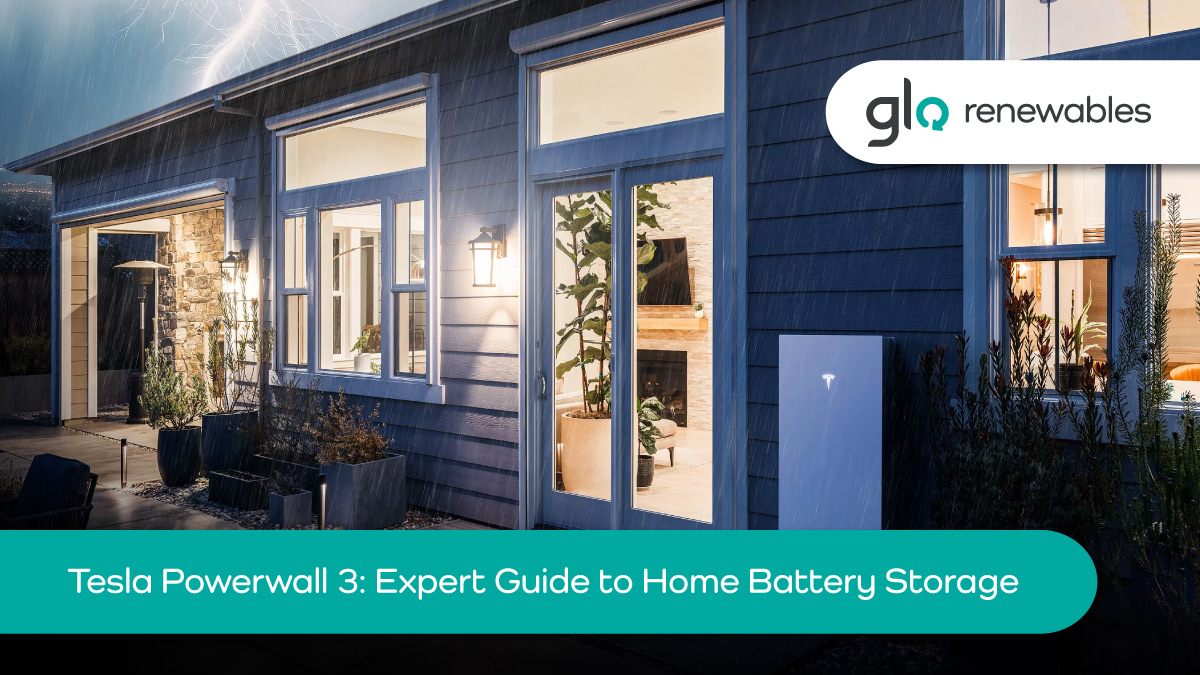The sun is setting on dated energy models, and the dawn of a sustainable era is upon us, with ground mounted solar panels leading the way.
Businesses across the UK, especially in Devon, are joining this green energy revolution, reducing their carbon footprint and reaping significant financial benefits along the way.
This article delves into the details of how ground mounted solar panels are reshaping the commercial and industrial energy landscape and why they could be the ideal solution for your business.
The Rise of Solar Energy in the UK
The UK’s commitment to achieving net-zero carbon emissions by 2050 has sparked a significant upswing in the adoption of renewable energy sources. Solar energy, in particular, has seen considerable growth, with the Solar Trade Association (STA) reporting an impressive 19% increase in solar capacity in 2022. This surge underscores the significance of solar energy in the UK’s energy transition.
Why Solar Energy?
Solar energy is not only a renewable and zero-emission source of power, but it’s also becoming one of the most cost-effective ways to meet the UK’s net-zero carbon emissions goal. With the cost of solar panels and related technology continually declining, solar power is becoming increasingly affordable for commercial and industrial entities.

The Role of Ground Mounted Solar Panels
Ground-mounted solar panels are becoming a popular choice for businesses thanks to their scalability, flexibility, and significant energy output. These systems are installed on the ground, often in large open spaces, making them ideal for businesses with extensive land.
The Financial Benefits of Ground Mounted Solar Panels
The financial advantages of transitioning to ground mounted solar power are compelling. Businesses can expect to see considerable long-term cost savings, reduced electricity bills, and potential financial incentives.
Cost Savings and Reduced Electricity Bills
One of the major benefits of ground-mounted solar panels is the significant reduction in energy costs. Data cited a 75% reduction in energy costs for businesses in the U.S. after converting to solar, UK businesses can similarly expect substantial savings on energy expenses by adopting solar power.
The exact savings will depend on various factors, including the size of the solar panel system installed and the business’s energy consumption patterns. These figures indicate that solar power is a financially attractive option for UK businesses, offering a way to significantly reduce energy costs and contribute to a more sustainable energy future.
Financial Incentives
Many governments, including the UK, offer financial incentives such as tax credits, rebates, and grants to businesses that invest in renewable energy, including solar power. These incentives can make the initial investment in a solar PV array more affordable and increase the return on investment (ROI).

The Scalability of Ground Mounted Solar Panels
Another major benefit of ground mounted solar panels is their scalability. Businesses and industries often deploy systems ranging from 10 kW to several megawatts to power their operations sustainably. As a business grows and its energy needs increase, ground-mounted solar systems can easily adapt, ensuring that the business’s energy requirements are always met.
The Environmental Impact of Ground-Mounted Solar Panels
Going solar isn’t just about financial benefits; it’s also about making a positive environmental impact. By installing ground mounted solar panels, businesses can drastically reduce their carbon footprint passively and with ease.
This commitment to sustainability and reducing carbon emissions can also enhance a business’s reputation, attracting environmentally conscious customers.
The Future of Ground-Mounted Solar Panels
With the world moving towards a more ethically conscious future, adopting ground mounted solar panels for your business is a smart and responsible choice. Not only does it financially benefit your operation, but it also contributes to a cleaner planet.
The Growth of the Solar Industry
The growth of the solar industry is driven by declining costs of solar panels, improvements in solar energy storage, and increasing incentives and regulations aimed at promoting the adoption of renewable energy.
One of the major trends in industrial solar energy production is the increase in large-scale solar projects, such as utility-scale solar farms and rooftop solar installations.
The Role of Technology
The use of advanced technology and automation is also increasing in the industrial solar energy sector. Artificial Intelligence (AI) and Machine Learning (ML) are being utilised to optimise solar energy production, while the Internet of Things (IoT) is enabling better integration of solar energy with other smart technologies.
Conclusion
The future of ground mounted solar panels in commercial and industrial settings is bright. As technology improves and costs decline, more and more companies are expected to adopt solar power as a cost-effective, sustainable, and environmentally responsible source of energy.
Are you ready to harness the power of the sun for your business? Glo Renewables, based in Devon, UK, is here to help you make the transition to ground mounted solar panels smoothly and efficiently. Contact us today to explore the potential of solar power for your business.
FAQs About Ground-Mounted Solar Panels
1. What are the benefits of ground mounted solar panels?
Ground-mounted solar panels have several advantages over rooftop solar panels, such as:
- They can be installed anywhere with good sun exposure and sufficient space, regardless of the roof’s orientation, slope, or material.
- They can produce more electricity because they have better air circulation and can be adjusted to the optimal angle and direction.
- They are easier to maintain and clean because they are more accessible and less prone to damage from weather or debris.
2. What are the drawbacks of ground mounted solar panels?
Ground-mounted solar panels also have some disadvantages compared to rooftop solar panels, such as:
- They are usually more expensive because they require more equipment, labour, and land preparation.
- They may not be allowed or require permits in some areas due to zoning, aesthetic, or environmental regulations.
- They may take up valuable land space that could be used for other purposes, such as gardening, landscaping, or recreation.
3. How to choose the best ground mounted solar panels for your home or business?
To choose the best ground mounted solar panels for your home or business, you need to consider several aspects, such as:
- Your energy needs and goals: How much electricity do you use and want to generate? How much space do you have and want to allocate for the system? How much are you willing to spend and save on the system?
- Your site conditions and characteristics: How much sun exposure and shading does your site have? What is the soil type and quality of your site? What are the local climate and weather conditions?
- Your system options and preferences: What are the different types and sizes of ground mounted solar panels available? What are the pros and cons of each option? What are the installation and maintenance requirements and costs of each option?
To make an informed decision, you should compare multiple quotes from different solar installers and providers and consult with experts like Glo Renewables and reviews to find the best fit for your needs and budget.
4. How do you install and maintain ground-mounted solar panels?
Ground-mounted solar panel installation and maintenance require professional help and care. The installation process involves:
- Site assessment and preparation: The solar installer will evaluate your site and determine your system’s best location, orientation, and design. They will also clear the land, dig the foundation, and install the racking and wiring.
- Panel installation and connection: The solar installer will mount the panels on the racking and connect them to the inverter and the grid or battery. They will also test the system and ensure it meets the safety and performance standards.
- Inspection and approval: The solar installer will arrange the necessary inspections and approvals from the local authorities and utility companies. They will also help you apply for any incentives and rebates you may qualify for.
The maintenance process involves:
- Regular cleaning and inspection: You should clean and inspect your panels at least once a year or more often if they get dirty or damaged by dust, snow, leaves, or animals. You can use a soft brush, a hose, or a cleaning kit to remove dirt or debris. You should also check the wiring, racking, and inverter for any signs of wear or malfunction.
- Prompt repair and replacement: If you notice any issues or problems with your system, contact your solar installer or provider as soon as possible. They will diagnose and fix the problem or replace any faulty or broken parts. You should also keep track of the warranty and guaran






